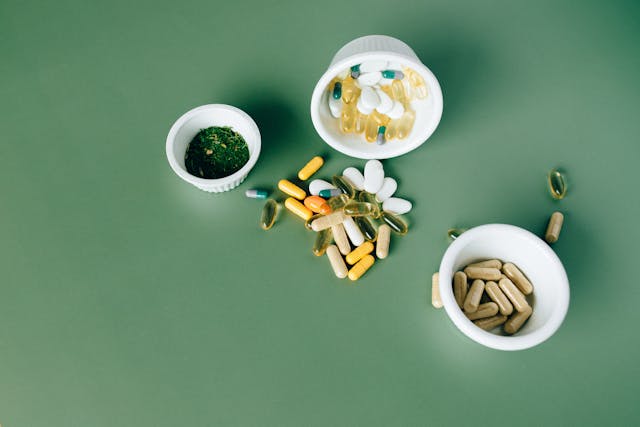Are You Drinking Enough Water to Keep Your Body Thriving?
As a health and wellness consultant, I’ve often seen how something as simple as drinking enough water can profoundly impact overall health. Yet, despite its importance, many people underestimate the role water plays in their daily lives. Did you know that up to 60% of the human body is made of water (Source: USGS)? Staying hydrated isn’t just about quenching your thirst—it’s a cornerstone of good health.
In this comprehensive guide, we’ll explore how much water you should drink daily, the benefits and potential disadvantages, and why hydration is crucial for your skin, energy levels, and overall well-being.
How Much Water Should You Be Drinking a Day?
The answer isn’t one-size-fits-all. The amount of water you need depends on factors like your age, weight, activity level, and climate.
General Guidelines:
- Men: About 3.7 liters (125 ounces) daily (Source: National Academies of Sciences).
- Women: About 2.7 liters (91 ounces) daily.
- Children: Varies by age, but typically 1-2 liters.
- Athletes: Higher water intake due to sweating during physical activity.
Pro Tip: Use your thirst as a natural indicator. Urine color can also be a hydration marker—aim for pale yellow.
What Is the Healthiest Water to Drink?
Not all water is created equal. The healthiest water is clean, safe, and rich in essential minerals.
Types of Water to Consider:
- Spring Water: Often rich in minerals like magnesium and calcium.
- Filtered Water: Removes contaminants while retaining beneficial minerals.
- Mineral Water: Packed with electrolytes, it’s excellent for hydration.
- Alkaline Water: Believed to balance pH levels in the body, though research is limited.
What Are the Benefits of Drinking Water?
Water is essential for nearly every function in the body. Here are some key benefits:
1. Improves Physical Performance
Staying hydrated enhances endurance, strength, and focus during workouts.
2. Boosts Energy and Brain Function
Dehydration as small as 1-3% can impair mood, memory, and focus (Source: Journal of Nutrition).
3. Promotes Digestive Health
Water helps break down food, prevent constipation, and support nutrient absorption.
4. Supports Weight Management
Drinking water before meals can reduce appetite and calorie intake.
5. Enhances Detoxification
Water helps flush out toxins through urine, sweat, and bowel movements.
Drinking Water Benefits for Skin
Hydrated skin is happy skin. Drinking water can:
- Improve skin elasticity and reduce the appearance of wrinkles.
- Promote a healthy glow by flushing out toxins.
- Prevent dryness and irritation.
Pro Tip: While drinking water supports skin health, a good skincare routine is equally important.
The Importance of Drinking Water
1. Regulates Body Temperature
Water helps dissipate heat, especially during exercise or hot weather.
2. Protects Tissues and Joints
It cushions joints, reduces friction, and supports movement.
3. Aids in Cardiovascular Health
Proper hydration supports healthy blood circulation and heart function.
Are There Disadvantages to Drinking Water?
Yes, even water has its limits. Overconsumption can lead to a rare condition called hyponatremia, where sodium levels in the blood become dangerously low.
Other Considerations:
- Drinking Excessive Water at Night: May disrupt sleep due to frequent urination.
- Overhydration During Meals: Can dilute stomach acids, affecting digestion.
Drinking Water Early Morning Disadvantages
While drinking water first thing in the morning has benefits, excessive intake on an empty stomach can cause:
- Nausea or discomfort for some individuals.
- Increased need to urinate, potentially disrupting your morning routine.
How to Make Drinking Water a Habit
- Carry a Water Bottle: Keep it with you to sip throughout the day.
- Set Reminders: Use apps or alarms to prompt hydration.
- Infuse with Flavor: Add lemon, mint, or cucumber for a refreshing twist.
- Track Your Intake: Monitor your daily water consumption.
FAQs About Drinking Water
1. Can I drink too much water?
Yes, excessive water intake can lead to hyponatremia, a rare but serious condition.
2. Is sparkling water as hydrating as regular water?
Yes, but avoid sparkling waters with added sugars or artificial flavors.
3. Does coffee or tea count toward water intake?
Yes, but they should not replace plain water due to their diuretic effects.
4. Should I drink water during meals?
Yes, but in moderation to avoid diluting digestive juices.
5. Can I hydrate through food?
Absolutely! Foods like cucumbers, watermelon, and oranges are excellent sources of water.
Key Takeaways
- Daily Intake: Aim for 2.7 to 3.7 liters daily, adjusting based on activity and climate.
- Best Water: Spring, filtered, or mineral water is ideal for hydration.
- Benefits: Improves digestion, boosts energy, and enhances skin health.
- Disadvantages: Overhydration and excessive morning consumption can have drawbacks.
- Habit Formation: Use reminders, carry a bottle, and track your intake for consistent hydration.
Conclusion
Water is life—it’s essential for your physical, mental, and emotional well-being. By understanding how much water to drink, its benefits, and potential pitfalls, you can optimize your hydration habits and lead a healthier lifestyle.
So, are you ready to make hydration a priority? Start today with small, consistent steps, and enjoy the incredible benefits that come with staying properly hydrated!


Pingback: The Ultimate Guide to High-Fiber Foods and Their Benefits - Wellness Readers Digest
Pingback: Prevent Hangovers: Doctor's Simple Trick to Avoid the Aftermath of Drinking Alcohol - Wellness Readers Digest
Pingback: Does Processed Meat Impact Lung Function? The Role of Nitrites in Ham and Bacon - Wellness Readers Digest